TOP DIAMONTOLOGY SCHOOLS IN THE USA
GET YOUR DIAMONTOLOGY DEGREE IN THESE FINE SCHOOLS
This post contains affiliate links. If you use these links to buy something I may earn a commission. Thanks! As an Amazon Associate I also earn from qualifying purchases.
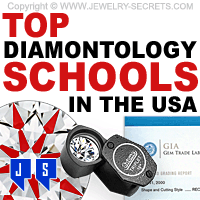
Diamontology is a branch of gemology that focuses solely on diamonds.
And boy is it awesome! :)
While some people may make diamontology their career, in itself; more often, it is a skill that professionals, such as gemologists or jewelers, possess that help them broaden their employment opportunities and/or customer base.
The question always comes up with both customers and employees… How do you become a Diamontologist?
The answer is simple: Training!
Being a Diamontologist will help you in all aspects of Jewelry and of course, selling Diamonds! Without it, you may be lost. It’s a MUST for anyone in the field!
So what does it take to Become a Diamontologist?
There are several training options for people who want to become diamontologists. There are short courses that train students in such individual areas as diamond grading or diamond setting, and then there are longer programs that lead to such distinctions as Graduate Diamontologists. The more training that students choose to opt for, the higher their salary may be and broader their employment opportunities will be. Students may opt to pursue a certificate, a diploma or a degree within the profession. For those people, who want to begin careers in the field, the following institutions all offer outstanding training for the profession.
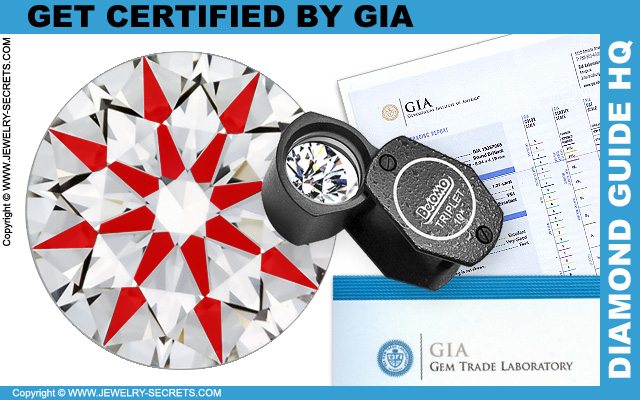
California
Many of the top Gem Labs in America reside in the State of California:
Gemological Institute of America (GIA)
Established in the year 1931, The Gemological Institute of America, located in Carlsbad, offers a remarkable Graduate Diamonds program, accredited by the Accrediting Commission for Career Schools and Colleges. Aspiring diamontologists can find out how to enroll within the Diamonds program by calling the institute at – 800-421-7250 or by writing to them at the following address – 5345 Armada Drive, Carlsbad, California, 92008. They can also find the admissions requirements online at – www.gia.edu.
The institute offers both on-campus and distance education for prospective diamontologists. The on-campus diploma Graduate Diamonds program is a seven week program that trains students within all aspects of the field. Some of the main areas of study within the program include Grading Diamonds, The D-Z Color Range and Grading, Detecting Synthetics, Detecting Treatments, Detecting Simulants, Detecting Fracture-Filled Diamonds, Promoting Diamond Value Using the Four Cs, Customer Service, Interacting With Vendors and Suppliers, and Diamond Terminology.
The tuition fee for the Graduate Diamond program, as of 2011, is $5,950. This fee does not include such things as living expenses, transportation, shipping and handling (distance education), purchase of gem testing equipment, returned check fees, fees for lost or damaged materials, application fees, course-repeat fees, and deposits for stones. Additional fees include a $35 application fee, $70/per day work room fees ($35/per half day), $75 for adds or drops, a $45 diploma replacement fee, and $5 for additional transcripts.
International Gem Society (IGS)
The International Gem Society, located in Hornbrook, offers a spectacular Diamond Grading course as part of their Gemology program. Those individuals, who would like to find out how to enroll in the Diamond Grading course, can contact the society at – service@gemsociety.org, or they may write to them at the following mailing address – Post Office Box 66, Hornbrook, California, 96044. They can also find the enrollment information within the IGS website at – www.gemsociety.org.
The Gemology program is free to members of the International Gem Society. Those individuals, who would like to join the society, must pay $59 for membership dues per year, as of 2011. Students will also need to pay a $30 fee for each grading. In the Diamond Grading course, students will learn such things as grading diamonds/cut, distinguishing diamonds, grading diamonds/clarity, grading white diamonds, and grading fancy colored diamonds.
Jewelry Arts and Design College (JADC)
Located in Los Angeles, Jewelry Arts and Design College offers a sensational Diamond course as part of their Gemology program, approved by the Bureau for Private Post Secondary Education. People, who wish to begin careers in the field of diamontology, can phone the college at – 213-738-7700, or they may write to them at their mailing address – 2975 Wilshire Blvd., Los Angeles, California, 90010. They can also find the Diamond course online at – www.jadcollege.com.
Students will learn many essential skills in the Diamond course including all of the following – Importance of Cuts When Buying and Selling, The Fours Cs of a Diamond’s Value, Handling Diamonds, Grading Diamonds in a Normal Color Range, Diamond Equipment, Determining Plot and Grade Clarity, Proportion Grading and Light Effects, Physical and Optical Properties, Fancy Color and Treated Diamonds, Diamond Simulants, and Promoting/Advertising and Displaying Diamonds.
While there is no individual price for the Diamond course, the tuition for the Gemology program, as of 2011, is $12,900 for 20 weeks of instruction and $1,328 for books and materials. Instruction includes Diamond course work, Colored Stone I course work and Colored Stone II course work. Upon graduation, students will receive a diploma. Applicants will need to meet with an admission’s officer prior to enrollment, and they will need to attend a tour of the school. They will also need to submit a short, one or two page essay describing their educational goals.
Florida
Institutes for Diamond Learning in Florida are as follows:
American Institute of Diamond Cutting
Located in Deerfield Beach, the American Institute of Diamond Cutting offers astounding certificate programs in Rough Diamond Grading, Diamond Cutting/Polishing, Diamond Manufacturing and Equipment, and Fancy Colored Diamonds. Those people, who would like to enroll within one of these remarkable programs, can contact the institute’s main office at – 800-831-8470, or they can write to the office at – 1287 East Newport Center, Deerfield Beach, Florida, 33442. They can also find an enrollment form online at – www.diamondschool.com.
Students, who choose to enroll within the Rough Diamond Grading Program, will need to complete 30 hours of course work in the following areas to earn their certificates – Sawing Techniques, Bruting, Cutting and Polishing, Diamond Cutting Wheels, Star and Butterfly Gauges, Facet Placement, Common Diamond Terminology, Examining Rough Crystals, Identifying Surface Markings, Grain Structures, Leverage Gauge, Diamond Scales, Rough Color Identification, Plotting Inclusions, Fancy Colors and Shapes, Fluorescence, Proportion and Symmetry Analysis, and much more.
Tuition fees for programs at the American Institute of Diamond Cutting vary depending upon the program that students may choose to enroll within. However, the following fees are the various tuition rates, as of 2011 – $3,500 for the Rough Diamond Grading program, $5,600 for the Diamond Cutting/Polishing program, $3,500 for the Fancy Colored Diamond program, and $7,000 for the Diamond Manufacturing and Equipment program. Students will also need to pay a $150 ($500 for the Diamond Manufacturing and Equipment program) registration fee to reserve a spot in their program of choice.
American School of Jewelry
The American School of Jewelry, located in Sunrise, offers a fantastic certificate Diamond Grader course, approved by the Jewelers of America. Those people, who would like to learn additional information pertaining to the school and the course, can call them at – 888-741-2020 or write to them at – 2240 North University Drive, Sunrise, Florida, 33322. They can also read about the program within the school’s website at – www.jewelryschool.net.
The Diamond Grader course teaches students everything they need to know to examine diamonds professionally. Some of the areas of study within the course are as follows – GIA Grading System, Diamond Characteristics, Tools of the Trade, The Five Cs, Color Grading, Clarity Grading, Cut Grading, Measuring Devices, and Calculating Values. The tuition fee for the Diamond Grader course, as of 2011, is $695 plus a $200 registration fee. The school does offer financial assistance for those students who may need help with their tuition fees.
Stewart’s International School for Jewelers
Located in Jupiter, Stewart’s International School for Jewelers offers a top-quality certificate Advanced Diamond Setting program, accredited by the Better Business Bureau. Those individuals, who would like to learn how to enroll within the program, can call Stewart’s at – 800-843-3409 or write to the school at – 651 West Indiantown Road, Jupiter, Florida, 33458. They can also find the enrollment procedures online at – www.stewartsintlschool.com.
For students to earn their certificates in Advanced Diamond Setting, they will need to complete the following areas of study – Durability Factors and Characteristics of Gemstones, Emerald Cut Setting, Gravers-Designing/Sharpening and Polishing, Bead Setting, Star Bright Cut Setting, Cluster Setting, Bar Setting, Block Bright Cut Setting, Tiffany Setting, Channel Setting, Tube Setting, Spin Setting, Gypsy Setting, Oval Setting, Trillion Setting, Investment Soldering, Thread Setting (diamond cuts), Pave Setting, Pave Setting/Bright Cuts, Pave Setting/Decorative Beads, Heart Setting, Azured Setting, Wedge Setting, Baguette Setting, Pear Setting, Marquise Setting, and Reverse Setting.
For students to gain admission within Stewart’s, they must be high-school graduates or possess a GED, and they must submit to a phone or personal interview. They must also submit an admissions application, transcripts and pay any applicable tuition fees. The cost for the Advanced Diamond Setting program, as of 2011, is $995, which includes all instruction and materials. They must also pay a non-refundable $50 registration fee, which the school will apply to their tuition fee.
New York
New York is home to some pretty large Diamond Institutes:
European Gemological Institute (EGL)
The European Gemological Institute (Laboratory) is a prestigious, global institution known everywhere for their outstanding services in the field of gemology. While most of EGI’s labs are located worldwide in such places as Hong Kong, Paris and London, they do have labs in Los Angeles and New York City, as well. In addition to offering such services as laser inscription, gemstone certifications and online verification, EGL offers splendid training in the fields of diamontology and gemology, as well.
The US-based laboratories offer valuable educational brochures explaining the Four Cs of the Trade, which are Color, Cut, Clarity and Carat. They also provide intriguing, Educational Lectures focusing on such topics as Diamontology, Diamond Grading and Appraisal, Gemstone Appreciation, Gemology, and Tools of the Trade. If people would like to find out additional information concerning the institute, they can call the New York lab at – 212-730-7380, or they may correspond with them at the following address – 580 Fifth Avenue, New York, NY, 10036. They can also visit the European Gemological Institute online at – www.eglusa.com/.
International Gemological Institute (IGI)
The International Gemological Institute, located in Los Angeles and New York City, has astonishing diploma programs in Polished and Rough Diamond Graders, accredited by the Better Business Bureau. If people would like to find out the complete details pertaining to these programs, they can phone the institute at – 213-955-0008 or write to them at – 550 South Hill Street, Los Angeles, California, 90013. They can also find essential information within the institute’s website at – www.igi-usa.com.
The International Gemological Institute offers both on-site and distance education for their students. The areas of study within the Polished Diamond Grader Program are as follows – Theoretical Notions, The Four Cs, Clarity Grading of Diamonds, Color Grading of Diamonds, Proportions of Round/Brilliant Cuts, Elementary Knowledge of Fancy Cuts, Diamond Fashioning/Rough to Finished, Analysis of Polish and Symmetry of Round Brilliants, Identifying Diamond Simulants, Treated Diamonds, and Analysis of Fancy Shape Proportions.
The areas of study within the Rough Diamond Grader program are as follows – Theoretical Notions/Crystallograpy and Chemistry, Diamond Properties, Sorting Rough Diamonds According to Quality, Sorting Rough Diamonds/Color and Clarity, Mining and Extraction, Diamond Fashioning/Rough to Finished, Analysis of Color and Clarity, Marking Rough Diamonds, Diamond Producers, Sorting and Evaluating Rough Diamonds, Computerized Quality Estimation of Rough Diamonds, Diamond Simulants, and Synthetic and Treated Diamonds.
The tuition for the Polished Diamond Grader program, as of 2011, is $600 to $800 depending upon the length of study. Tuition for the Rough Diamond Grader program is $1,200, and fees for the Polished Diamond long-distance program are $295 plus shipping expenses.
Ohio
Diamond Schools in Ohio are:
Drouhard National Jewelers School
Located in Mansfield, Drouhard National Jewelers School has a magnificent certificate Advanced Diamond Setting program, accredited by the Better Business Bureau. Prospective students can phone Drouhard at – 888-663-9335 or write to the school at the following address – 2236 South Main Street, Mansfield, Ohio, 44907. There is also valuable information online at – www.drouhardjewelerschool.com.
Students in the Advanced Diamond Setting program will need to complete studies in several areas including the following – Gemstone Characteristics, Oval Cut Setting, Graver Design, Bar Top Setting, Bead Setting, Emerald Cut Setting, Star Bright Cutting, Marquise Setting, Block Bright Cut, Cluster Setting, Pear Setting, Channel Setting, Gypsy Setting, Baguette Setting, Princess Cut Setting, Thread Setting, Pave Setting, and Investment Soldering. For students to enroll in the Diamond Setting program, they must pay a $100 registration fee (as of 2011) and a tuition fee of $795. This fee includes all course work and materials necessary for the program.
Tennessee
The Biggest Diamond Institute in Tennessee is the DCA:
The Diamond Council of America (DCA)
Located in Nashville, the Diamond Council of America offers an exceptional certified diamond certificate program, accredited by the Distance Education and Training Council. Those people, who would like to learn how to enroll within the diamond program at DCA, can contact the council at – 615-385-5301, or they can write to them at the following address – 3212 West End Avenue, Suite 400, Nashville, Tennessee, 37203. They can also read about the program within the DCA website at – www.diamondcouncil.org.
The certified diamond program is a distance education program that costs approximately $115, as of 2011. This program consists of 21 lessons split up into three different main sections. The first section focuses on the following areas of study – The Four Cs (Color, Clarity, Cut and Carat Weight), Diamond Treatments, Synthetic Diamonds, and facts concerning Diamond Jewelry. The second section of the program focuses on the following lessons – The History of Diamonds (where they came from), Diamond Mining and Processing, Diamond Cutting, and Marketing Diamonds. Finally, the third section focuses on the following studies – Cleaning Diamond Jewelry, Displaying Diamond Jewelry, Presenting Diamonds, Selling Tools, Selling Process, Customer Service, and Professionalism.
Texas
Texas Diamond Schools are:
The International School of Gemology
Located in San Antonio, The International School of Gemology offers a phenomenal, certificate Diamonds course, accredited by the Better Business Bureau. Those people in the San Antonio area, who would like to learn how to register for the Diamonds course, can phone the school at – 210-877-5816 or write to them at the following mailing address – 8925 Brae Vista, San Antonio, Texas, 78249. They can also find enrollment information online at – www.schoolofgemology.com.
For students to earn their certificates from the International School of Gemology, they will need to complete the following course work – Formation of Diamonds, Diamond Colors, Diamond Markets, Grading Diamonds for Cut/Clarity and Color, Diamond Treatments, Grading Diamonds, Practical Diamond Grading, Identifying Rough Diamonds, Diamond Cut Grading and Evaluation, Diamond Color Grading and Evaluation, Diamond Clarity Grading and Evaluation, Identifying Synthetic and Treated Diamonds, and Jewelry Sales. For current tuition fees, students need to contact the institute.
Washington
The State of Washington has some Diamond Institutes as well:
Northwest Gemological Institute (NGI)
Northwest Gemological Institute, located in Bellevue, offers an unbelievable certificate Diamond Grading program, approved by the American Gem Society. Those people in the Bellevue area, who would like to earn their Diamond Grading certificate from the laboratory, can find out how to apply by calling – 425-455-0985 or by writing to – 10801 Main Street, Bellevue, Washington, 98004. They can also find the application procedures within the laboratory’s website at – www.nwgem.com.
Before students can earn their certificates in Diamond Grading from Northwest Gemological Laboratory, they need to complete the following course work – Identifying Inclusions, Diagramming Characteristics for Identification, GIA Clarity Grading Standards, Inspecting Diamonds with a Jeweler’s Loupe, Diamond Presentation, Estimating Carat Weight of Loose and Mounted Stones, Principles of Color Grading, Cutting Procedures, Style and Proportion Analysis, Diamond Treatments, Fracture Filling, Cubic Zirconia, and Identifying Synthetics. Tuition for the Diamond Grading program, as of 2011, is $495.
International Online Program in Diamontology
Looking online to learn Diamontology? This is a great program to start:
Institute of Diamond Trade
Located in New Delhi, the Institute of Diamond Trade offers an excellent online certificate program in Diamond Grading. People, who would like to earn their Diamond Grading certificate online, can call the institute at – 981-018-5766 or write to them at – 4A/12 Tilak Nagar, New Delhi, Pin 110018. They can also learn additional information pertaining to the institute and the Diamond Grading program online at – www.idtworldwide.com.
The online Diamond Grading program consists of two separate modules of relevant course work. Module I is 60 days long and, the tuition is $250. For students to complete Module I, they must take the following classes – Definition of Precious Stones, Diamond Formation and Occurrence, Mining and Processing Methods, and Production in 1998. Module II is also 60 days long and costs $250. Students will need to take the following classes to complete Module II – Inclusions, Clarity Grading, Color Grading, Carat, Cut, Fancy Color and Shape Grading, Synthetic Diamonds, and Synthetic Moissanite.
Diamontology Work and Pay
Diamontologists can work in many different settings; however, some of the most common places they choose to work within include High-End Jewelry Stores, Department Stores, Auction Houses, Museums, Manufacturing Companies and Pawn Shops. Some also work as Freelancers, Buyers or Brokers; and some choose to work for Insurance Companies, Laboratories or even in their own Shops.
The Salary of Diamontologists varies significantly, depending upon where they may choose to work, how much experience they may have, and what distinctions they possess. While some may simply earn an hourly wage or commission, some may make salaries ranging from $15,000 per year to $20,000 or more. People, who own their own Jewelry Shops make much more than those who work in retail. Buyers and Brokers also make Comfortable Salaries.
Location plays a part in Salary, as well, with those persons in New York and California making much more than most of the other states within the US. Although many consumers may not purchase new jewelry during difficult economic times, there is always a demand for such things as repairs and appraisals of used jewelry. Thus, the job outlook of Diamontologists is moderately bright.
What Tools do Diamontologists Use?
While there are many tools necessary for the career of Diamontology, there are some basic and specialized tools worth mentioning. These tools are as follows:
- White Light Lamps
- Ultraviolet Light Lamps
- Standard White Paper
- Tweezers
- Lint-Free Fabric
- Cleaning Liquid
- Loupe
- Gauge
- Microscope
- Color Matterstones
- Balance
Most of these Tools can be found here on Amazon: Jeweler’s Tools
What do Diamontologists Do?
There are many tasks that Diamontologists undertake depending upon where they may choose to work. However, some common tasks they perform are Diamond Appraisals, Grading, Polishing, Cleaning, Repair, Buying, Selling, Setting, Finishing, and Certifying. They need to have all of the skills necessary to determine a Diamond’s Worth, how to Repair them, and how to Present and Sell them.
These professionals must also possess Excellent Customer Service Skills, as they Deal with the Public on a Daily Basis. They must know the Best Way to Display the Stones so that they Appeal to Consumers, and they need to be Knowledgeable in such aspects as Diamond History and Current Fashion Trends, as well. Knowing current Fashion Trends will help them determine what Diamonds will Sell and what ones will not at the present time.
Common Diamond Terminology
1. Blemish – This is a flaw upon the surface of the diamond, such as a scratch. Flaws do not necessarily deter from the beauty of diamonds, so long as they do not interfere with light flowing through them.
2. Brilliance – This is the white light that reflects from the top of diamonds. When diamontologists cut diamonds properly, they can strengthen the reflection of light and increase the stone’s brilliance.
3. Brilliant Cut – This is a fifty eight facet, round diamond, often called an American brilliant. Diamontologists use this shape and arrangement to maximize a diamond’s brilliance.
4. Carat – This is a unit of weight that professionals use for diamonds. Typically, larger diamonds are worth more than smaller ones.
5. Clarity – This is a grade that diamontologists give to diamonds to describe their level of inclusions, or impurities.
6. Cloud – This is a group of tiny inclusions within a diamond that gives it a cloudy look. While small clouds do not interfere with a diamond’s brilliance, large clouds can.
7. Color – This is a grade that diamontologists give to diamonds to describe the various, subtle tones in the stones. Some colors are more valuable than others.
8. Culet – This is a facet on the underside of a diamond. Large culets make the diamonds leak light; thus, it is best to have small culets. However, without a culet, the diamonds can become damaged easily.
9. Cut – This refers to the proportions and shape of the diamond. The proportions, or make, of diamonds are essential in a diamond’s brilliance.
10. Depth – This is the height of diamonds, as measured from the culet to the table facet. The depth percentage determines the brilliance of diamonds. A low percentage causes light to leak out, and the diamond will lose its brilliance.
11. Eye-Clean – This is a diamond that does not have any flaws (inclusions) that are easily seen without the use of magnification (usually an SI1 or higher).
12. Facets – These are the flat, smooth surfaces of diamonds.
13. Fire – Also known as refraction or dispersion, this is the colored light that is reflected from diamonds.
14. Fluorescence – This is a light (glow) that emanates from diamonds when exposed to ultraviolet light. A Blue Glow is the most common color.
15. Girdle – This is the thin band encircling the outside of diamonds. Settings hold diamonds around girdles, and they can be faceted (polished) or rough.
16. Inclusions – These are impurities in diamonds, such as spots or imperfections in structure of the stone. Inclusions can also include clouds or fractures. Some inclusions may be visible without magnification, while some may need magnification.
17. Loupe – This is a tiny 10x magnifying glass used to examine diamonds and gemstones.
18. Make – This is the overall quality of the proportions and finish of diamonds. Low-quality makes will decrease brilliance.
19. Pavilion – This is the bottom half of diamonds, measured from the bottom of the girdle to the bottom of the culet.
20. Point – This is another measure of diamond’s weight. One point is the same as 1/100 of a carat.
21. Polish – This is a grade that diamontologists give to the outside finish of diamonds. Excellent polish maximizes brilliance.
22. Sparkle – Also known as scintillation, this is the combination of brilliance and fire.
23. Symmetry – This is a grade that diamontologists give to the uniformity of a diamond’s cut. Poor symmetry lacks brilliance.
24. Table – This is the largest, flat facet on the top of diamonds. Table facet that is too small or too large will decrease fire and brilliance. Table percentage is the width of the diamond’s table divided by the diameter.
The Difference Between Certification and Appraisal
While many people may think that Diamond Appraisals and Certifications are one in the same, they are two totally different processes. However, both Appraisals and Certifications are essential in determining the Value of Diamonds. Certification, also known as Diamond Grading Reports, describes the Characteristics of Loose Diamonds pertaining to such things as their Carat, Color and Clarity. Other characteristics that may be included in the report are Symmetry and Polish. Certified Diamonds are those Loose Diamonds that are accompanied by a Grading Report from a Diamontologist or other trained professional.
These Grading Reports, however, do not place a monetary value on diamonds (IGI is the Exception). They simply state the characteristics of the individual stones. Professionals evaluate them on different scales, including the SI3 Clarity Grade (EGL) and a color scale that rates them using various numbers and letters D through Z. The Color Scale rates the Stone’s Saturation and Hue, with Clear Stones at the top of the Scale and Dark Stones at the bottom. While there are many institutions that offer Diamond Certifications, the most commonly used and the most credible institutions are the Gemological Institute of American (GIA) and the American Gem Society (AGS).
Unlike certifications, which professionals can only perform on Loose Stones, they can perform Appraisals on both Loose and Mounted Diamonds. While Appraisals are not as intensive as Certifications and do not provide Detailed Descriptions of the Stones, Appraisals can place Value on Precious Diamonds. Typically, Diamontologists or other professionals of the trade will determine the Value of the Stones simply by viewing them and using their knowledge of Diamonds. There are many reasons that people need Diamonds Certified and Appraised, such as for Selling Purposes, Insurance Purposes, Settling Estates, Collateral Purposes and Determining the Value of Antiques and/or Museum Pieces.
So all in all, becoming Certified in Diamonds is a Worthwhile and Admired Career Choice. All it takes is a Desire to Learn and the Sources to learn from.
The Programs, Courses and Certification Degrees listed above are a great place to start.





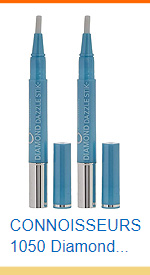

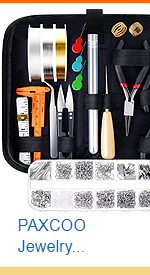
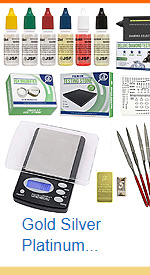



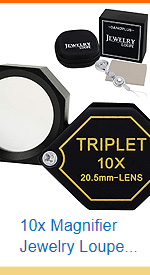
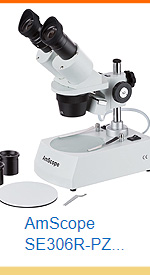
Leave a comment